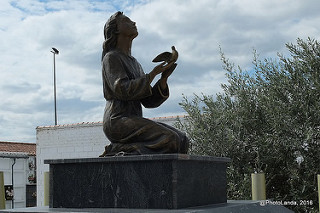The Northern Scientific Training Program (NSTP) is a supplementary grants program which was put in place to help defray the high costs of conducting fieldwork in the North and to encourage students to develop a commitment to northern research. For further information on the program please read the online NSTP Information Manual: http://www.canada.ca/en/polar-knowledge/fundingforresearchers/index.html#h2-2
Answers to frequently asked questions are here: http://www.canada.ca/en/polar-knowledge/fundingforresearchers/faq/index.html
Online application forms are available at: https://nstp-pfsn.fluidreview.com/
CRITERIA and ELIGIBILITY
The Program supports field research in any discipline – life, physical, human and health sciences – as long as the research has an essential orientation and impact on the North. The term “North” is normally understood for purposes of the Program to include that part of Canada which lies north of the southern limit of the discontinuous permafrost zone (see map at: http://arcg.is/1vGHyr; and the other seven circumpolar countries (Finland, Greenland (Denmark), Iceland, Norway, Russia, Sweden, and the United States (Alaska)).
Funding is available for ALL complete and eligible applications that are submitted from Western. Typical awards are between $2000 and $3000, with a recommended maximum request of $4500. Awards are intended to provide travel expenses for students already receiving research funding from another source (for example, a supervisor’s research grant).
The student must be a Canadian citizen or permanent resident and enrolled in a graduate or senior undergraduate (currently in 3rd or 4th year) program at a Canadian university.
A student who is employed or remunerated for their research in the field cannot receive NSTP.
Field schools are not eligible.
Geographic eligibility: The research activity and travel must be north of the sporadic discontinuous permafrost line (approximately 50 deg N), anywhere in the Northern Hemisphere. For exact details, see the Information Manual.
SIMPLE APPLICATION PROCESS
IT IS EASY! The application and statement of research require significantly less content and effort than NSERC, SSHRC or OGS!
Students must go online, create a profile and complete the online application form. New supervisors will have to create a profile as well. The forms for students and supervisors are available at: https://nstp-pfsn.fluidreview.com/
Following the field season for which funding was provided, a brief report is required from the student through the online system.
Please follow the instructions in the student manual (http://www.canada.ca/en/polar-knowledge/fundingforresearchers/). Incomplete or incorrectly formatted applications will be returned to the applicant for revision. Applications received at the deadline that are incomplete or requiring changes may not be accepted.
DEADLINES AND CONTACT INFORMATION
The deadline for completing the online application is 11:59 pm, November 14, 2017.
Please direct any questions to Western’s NSTP committee at northern@uwo.ca or co-chairs Brian Branfireun and Gordon Osinski (bbranfir@uwo.caor, gosinski@uwo.ca) or Graduate student committee member Susan Anthony (santho2@uwo.ca).
photo credit: Steven Christenson Holy Cross Motion [Explored] via photopin (license)









